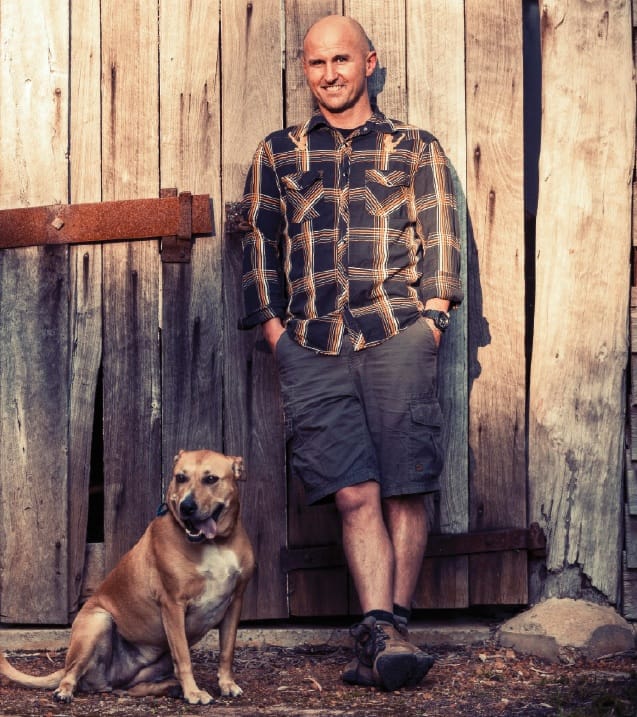
Xanadu senior winemaker Glen Goodall is having a good day in the wine region he calls “utopia” – Margaret River. The sun’s shining (again) and the surf’s up, but that will have to wait because Glenn is tasting his way through 25 or so batches of 2015 Chardonnay.
“Chardonnay classification is always one of the best weeks of the year,” Glenn says. And he likes what he sees. “It’s looking good. There was bugger all crop with Chardonnay, but the quality of the material we do have is exceptional.”
There are now a lot more good days than bad at Xanadu, which has quite a chequered history. Established in 1977 by Irishman Dr John Lagan, Xanadu in its early years was known for its striking packaging with the famous blue dragon, and for producing serious quantities of commercial wine. In 2001 it became a publicly-listed company with grand plans and production went through the roof. It all turned sour. Xanadu returned to family ownership in 2005.
There is no general manager on site, although management issues invariably end up in Glenn’s in-tray. “I’ve avoided being GM like the plague,” he smiles. “I don’t want to lose contact with the wine. I’m sure many winemakers juggle it, but if I focus fairly and squarely on the wine, we have enough support in Melbourne to deal with management issues.”
Xanadu is part of the Melbourne-based Rathbone Wine Group, founded by entrepreneur Doug Rathbone, who made his fortune with agribusiness Nufarm. In February he resigned as chief executive to pursue other interests. The wine group is run by his son, Darren, and also includes Yering Station and Mount Langi Ghiran.
Xanadu has had an amazing run with accolades in recent years and has been universally praised for its lift in wine quality, culminating with James Halliday naming 2011 Xanadu Stevens Road Cabernet Sauvignon Wine of the Year in 2014, with 99 points.
Halliday said of the wine: “It smote my vinous heart in the way a great Burgundy might; instantaneously, and without any analysis.” Glenn says, “Yes, we’ve had a fantastic run, but to be honest, it’s been on the back of a great run of seasons. Margaret River has had almost a decade of cracking vintages.”
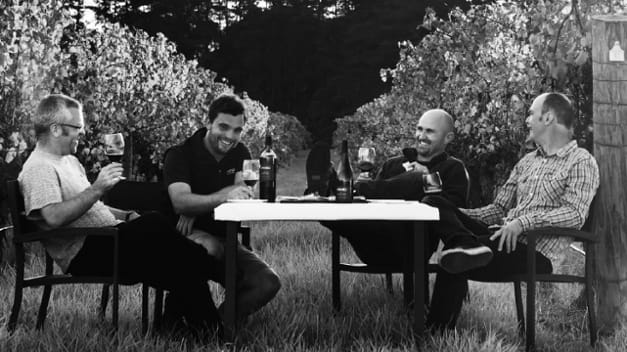
Glenn was born in New Zealand. His wife, Ely, a Western Australian, is also a winemaker. They were working in South Africa when Ely found out she’d got a job at Cape Mentelle. Glenn followed her to Margaret River a month later, working in a vineyard at Ashbrook and then doing contract winemaking for Harmans Ridge Estate before joining Xanadu as an assistant winemaker in 1999. The winery, owned by Dr John Lagan back then, was about to list on the Australian Stock Exchange. It was a volatile time for Glenn and team, before Doug Rathbone bought the Xanadu brand and assets in 2005. That year they crushed 650 tonnes for the Xanadu brand, compared to 2,500 tonnes a few years earlier.
“The Rathbone family changed the focus from quantity to quality,” Glenn says. “They realised they had a great brand with great potential. They were committed. They wanted to invest in the brand, which had been through a rollercoaster period.” They pondered whether to keep the name Xanadu.
“Even though Xanadu had had a rough ride, it had a 30-year history, and one thing you can’t purchase is history.”
Doug and Darren Rathbone were upfront with Glenn from their first meeting, saying they wanted to employ a high-profile winemaker. “They asked me if I was comfortable with that, which I was,” Glenn says. “Soon afterwards they tapped me on the shoulder and said I was doing a good job and asked me if I wanted to drive the bus. They gave me a free licence with interpretations of the wines and the styles, particularly with Chardonnay.
Our best Chardonnay comes from The Lagan Estate Vineyard, which is the source block for our Reserve Chardonnay. It is a resource we’ve always had, but we’ve just gone with a minimal approach to the winemaking. If the loudest voice in the glass is the vineyard, not the winemaker, then the winemaker’s doing a good job.
“We’ve got a great team here – and great resources. We’re in a really fortunate position now. What’s nice is the gatekeepers in particular seem to like us. They have moved on from the bad old days. They are buying our wines on their merit, not on what happened a decade ago. I don’t think it was quite as easy as the Rathbone family thought it was going to be, it has taken time, but it’s certainly been a labour of love for them. I know Darren in particular has a genuine soft spot for Xanadu.”
Glenn says keeping the core team together through some trying times has paid off. “I have a great team that is extremely stable,” he says.
“We have had only a few changes over the years, which, for the wine industry, let alone any industry, is pretty good. It shows how people feel about working here, not just from a wine quality perspective, but also a team perspective. The camaraderie is good. It’s a good place to work.”
Xanadu now puts as much effort into the vineyard as it once did with its branding. Glenn pays tribute to the group’s technical viticulturist, Nathan Scarlett, for helping with Xanadu’s rejuvenation. He died two years ago from cancer. He was 38. This year Xanadu’s sister winery, Yering Station, produced a $200 tribute wine called Scarlett Yarra Valley Pinot Noir 2013. Tyson Stelzer gave it 96 points in WBM.
“Nathan was instrumental in helping to get the vineyards right,” says Glenn. “There has been a massive vineyard upgrade and he was a big part of it. Our viticulturist, Suzie Muntz, and her team have carried on Nathan’s good work.”
Asked to name the one thing that turned around wine quality, Glenn mentions precision viticulture and improved irrigation and canopy management techniques, but then says, “The main difference has been the picking times. Before I became senior winemaker, we would harvest six or 10 hectares at a time, but now I walk a lot of rows and it’s common to pick half a row and then come back and pick the other half a week later.
“Since I’ve started identifying different sections within blocks, we have modified irrigation and canopy management techniques in an effort to make blocks more uniform (to avoid the differential harvesting I regularly used to make the guys do). Having said that, I still like to target specific areas of the vineyard at different times to get the best out of each block, and have a bigger palate of colour to play with when putting blends together.”
Glenn says the purchase in 2008 of the Stevens Road Vineyard down the road from Xanadu, was also critical to the turnaround. “I’m so buoyant about the quality of that vineyard, and we’re one of the few in Margaret River still planting,” he says.
Xanadu produces 40,000 cases a year, down from 70,000 to 80,000 cases a decade ago. “We took it right back, but now we’re creeping up again,” Glenn says. “It was important to re-establish confidence in the brand before making that step to grow production – baby steps of sustainable growth rather than trying to go like a bull at a gate. It has been a long process, but hopefully it pays dividends in the long term.”
The Halliday Wine Companion 2016 lists 11 Xanadu wines with 95 points or more. “I think Halliday’s endorsement and the endorsements of magazines like WBM and a few big trophies have all
helped to change the demographic visiting the winery,” Glenn says. “People who visit Leeuwin Estate up the road are starting to put the indicator on and come up our driveway. They have money to spend on high-end wines and are not just tyre-kickers or people looking for tea towels.”
They still sell those tea towels?
“No,” Glenn says. “I’m sure there’s a good market for them somewhere. Back in the old days we had merchandise galore. You could get anything you wanted with a blue dragon on it.”
Is the dragon still alive?
“Only on the front gate,” says Glenn, “as a bit of an historical memento. The Rathbone family for the first couple of years maintained that dragon emblem on the entry level levels, but there was a conscious effort with the rebranding because people still associated Xanadu with the previous ownership. The sweeping changes made to our branding helped to crystallise that change of ownership and herald that these wines were completely different to what we had produced in the past, and there was a different philosophy in place.”
Asked what keeps him awake at night, Glenn says not much. “When it comes to the weather, I can’t control that.” He thinks for a minute and replies, “Although we’ve enjoyed good vintages, we’re not immune to the challenges the industry is facing. People are battening down the hatches and focusing on keeping afloat. They’re being frugal, trying to get the best out of their vineyards cost effectively.
“Having said that, the Margaret River wine scene is vibrant. There’s the old guard, but even though they’ve been around for 30 or 40 years, they’re having to look over their shoulder because there are so many other new and emerging brands coming out of Margaret River who are making amazing wines, including an underground garage wine movement making quirky alternative and natural wines. The industry is pushing the boundaries, so established brands, including Xanadu, don’t have the luxury of resting on our laurels.”
Two years ago the Rathbone family sold its prized Parker Coonawarra Estate to John Hesketh’s WD Wines, to free up cash. It also announced the group was on the market for the right price. It has since been taken off the market.
“There is a real drive for Xanadu to stand on its own two feet and be profitable for the Rathbone Wine Group,” says Glenn. “We work together as a group, but there are no free hits, we’re all accountable. We don’t want one side of the business propping up another. I don’t get involved in the financial side. Darren Rathbone drives that from Melbourne but keeps each of the wineries in the loop. If I focus on my core goals, making the best wines and making the business profitable, and hold up my end, it makes it easier for Darren in the bigger picture.”
To improve cashflow, the 3,000 tonne winery is doing more contract processing. Although the bread and butter varieties are Chardonnay, Cabernet Sauvignon, Semillon and Sauvignon Blanc, things like Graciano and Malbec are adding interest. Glenn is not afraid of quite a few SKUs.
“Some of them are only small makes, and most are coming from the Stevens Road Vineyard,” he says. “As long as there are points of differences in the wines and different price points, I think it’s okay. It offers diversity to people.”
Aly lectures at the Margaret River campus of Curtin University in winemaking, but also consults, her main client being Driftwood. Glenn says they have spoken about taking the plunge one day with their own wine label. “But making it is easy, selling it is hard,” says Glenn, who has three kids aged eight, 10 and 12. “The priority at the moment is a young family. One day, maybe, but Ely would drive that. She is a talented winemaker in her own right … hopefully I’d get a bit of input.”
Glenn returns to the earlier question of losing sleep. “I think a lot about maintaining a good staff environment,” he says. “I reckon whether it’s making wine or shoes, any business is about relationships. If you have good relationships with your staff, suppliers and growers, they buy into the same goal. As well as having a stable team in the winery, we have a stable core group of growers – and they’re wine growers, not grapegrowers. They are interested in knowing where their blocks end up. When we do an allocation tasting, which we do blind, we invite them to come in and taste them. If they have queries, they can speak directly to me, or even better, to other growers, and say ‘well, how come yours got Reserve and mine got Next of Kin?’ They can do the Pepsi challenge for themselves and engage with other growers and buy into what we’re trying to achieve and feel part of the team. It’s amazing to see their engagement. By paying them decent prices and giving them appropriate feedback, they pay you back tenfold. When you’ve got good relationships with growers, you don’t need to wave a big bloody stick. But by the same token I’m demanding decent fruit.”
To help with morale, Glenn and his team win trophies. He also “gets involved” with the team at all levels. “Everybody’s role is equally important,” he says, “whether you’re cleaning the floors or the barrels or making a harvesting decision, I run the estate as a democracy, not a dictatorship. When putting blends together, I encourage a panel of people including the guys in the vineyard to taste them. Ultimately someone has to make the decisions, and I’m happy to do that, but I garner opinion from others’ palates. I appreciate their input, whether they’re an experienced taster or not. Sometimes I’ll go into the office and show the girls a wine to get a real punter’s perspective and not necessarily a technical perspective.”
Glenn says they’ve always had a bit of a culture of having a laugh including the occasional fancy dress day. “We come in drag during vintage,” he says. “Well, we have two or three of those a year, to be honest. When you’re working with people you enjoy spending time with, it makes coming to work fun.”
The keen surfer feels fortunate to live in “utopia”. “We’re so fortunate to be in a great winemaking and viticulture area, and we seem to be – touch wood – relatively immune to the vintage differences that the eastern states have experienced over the past decade, albeit we have had an amazing run,” he says.
“I enjoy making wines from this style of fruit. It helped me to make the style of wines I enjoy making and drinking. It’s also a great place to live and raise a family. There are few places where you can get up and go surfing before work and then come in and taste 20 barrels. We have this great community that genuinely cares about Margaret River full stop, not just the wine industry.”
Glenn’s staying put. “Totally,” he says.
“I have too much invested in this place, and the people and the growers, to be going anywhere. We’re in a really good place at the minute and I’m thrilled to be here.
“I know it’s been a rollercoaster ride, but to actually come out the other side and feel that you’ve been a genuine part of achieving something – the reinvention of Xanadu – feels good.”
Latest cover story




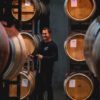



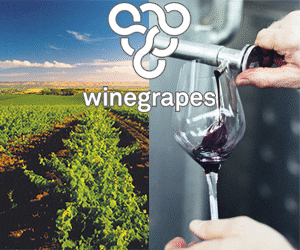
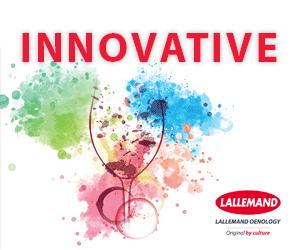
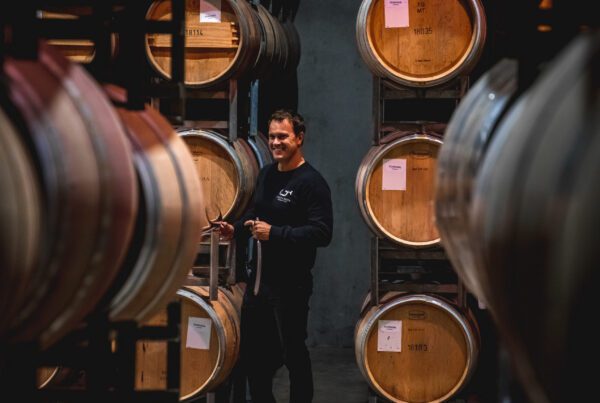
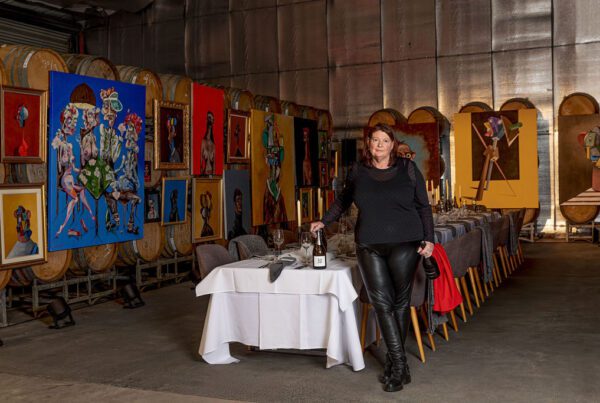
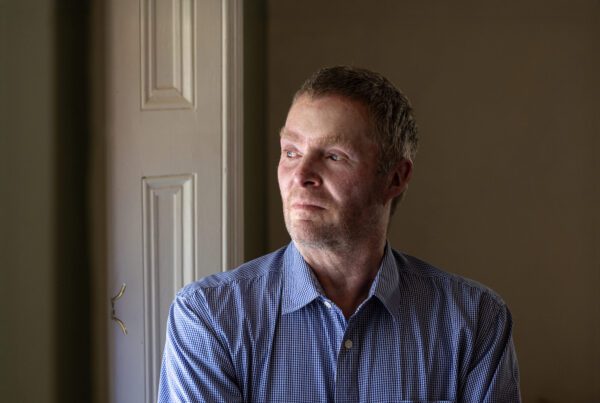
Recent Comments